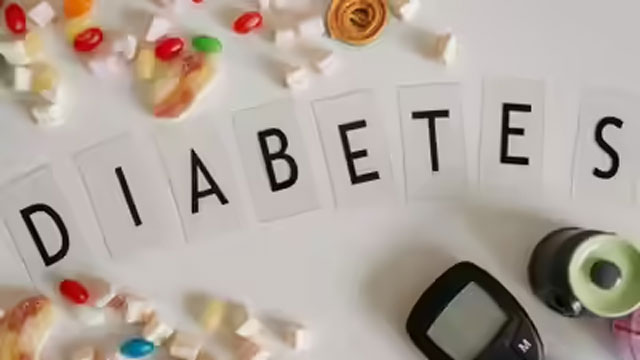Health
Five Common Foods That Interfere with Diabetes Medications

Managing diabetes involves more than simply making healthier meal choices; it also requires understanding how certain foods can affect the efficacy of diabetes medications. Recent insights from health experts highlight that various dietary choices can influence medication absorption and effectiveness. As diabetes drugs work through mechanisms such as enhancing insulin sensitivity and regulating digestion, it is crucial for patients to be aware of how their food and drink selections could impact their treatment.
Impact of High-Fat Meals on Diabetes Medications
High-fat meals are significant contributors to delayed gastric emptying, which can hinder how quickly diabetes medications take effect. Nutritionists emphasize that heavy, fried, or creamy foods slow down digestion, leading to discomfort for individuals using medications like *GLP-1 receptor agonists*. These patients often report increased nausea, vomiting, and bloating after consuming fried snacks, processed meats, and rich desserts. A study published in the Journal of Clinical Endocrinology & Metabolism found that high-fat meals markedly delayed stomach emptying and altered glucose responses after meals. Regular consumption of saturated fats from items such as pastries, whole-fat dairy, and fatty meats is also associated with heightened insulin resistance, complicating blood sugar management.
Effects of Sugary and Processed Foods
Foods high in added sugar present another challenge for diabetes management. Sweets, sugary beverages, breakfast cereals, and packaged desserts can cause rapid spikes in blood glucose that counteract the benefits of medication. While these foods do not block diabetes drugs directly, they create a cycle in which medication lowers blood sugar while sugary items elevate it again. Nutritionists recommend opting for whole fruits, legumes, vegetables, and whole grains, as these contain natural fibre that helps regulate glucose release and support medication efficacy.
Similar issues arise with highly processed and refined carbohydrates. Items such as white bread, biscuits, crackers, and refined-flour noodles break down quickly during digestion, leading to sharp spikes in glucose levels. For patients using fast-acting insulin, this can result in a pattern of rapid rise followed by a steep drop in blood sugar. Experts suggest that pairing refined carbohydrates with protein or healthy fats can mitigate these effects, but refined carbs should not dominate a diabetic diet. Instead, whole grains like oats, quinoa, and brown rice, along with fibre-rich foods like beans and lentils, are recommended for maintaining stable blood glucose levels.
Caffeine and Alcohol: Cautionary Considerations
Excessive caffeine consumption can also interfere with specific diabetes medications. Caffeine is known to increase urination, potentially exacerbating the dehydrating effects of *SGLT2 inhibitors*, which lower blood glucose by promoting urination. High caffeine intake from strong coffee, tea, or energy drinks can lead to dehydration, dizziness, and an imbalance of electrolytes. Although up to 400 mg of caffeine per day is generally considered safe, patients taking SGLT2 inhibitors should closely monitor their consumption.
Alcohol poses additional risks for individuals on insulin or insulin-stimulating medications. It can inhibit the liver’s ability to release stored glucose, thereby increasing the risk of hypoglycaemia, particularly when consumed on an empty stomach. Alcohol may also intensify nausea and digestive discomfort associated with several diabetes drugs, alongside exacerbating dehydration issues. Healthcare professionals typically advise spacing the consumption of alcohol and medication doses, adhering to recommended limits of generally one drink per day for women and two for men, depending on specific medical advice.
Health experts maintain that making thoughtful food choices can enhance glycaemic control, reduce unwanted side effects, and maximize the effectiveness of diabetes medications. As dietary interactions with medications can lead to significant fluctuations in blood glucose levels, understanding these relationships is vital for those managing diabetes.
-

 World5 months ago
World5 months agoSBI Announces QIP Floor Price at ₹811.05 Per Share
-

 Lifestyle5 months ago
Lifestyle5 months agoCept Unveils ₹3.1 Crore Urban Mobility Plan for Sustainable Growth
-

 Science4 months ago
Science4 months agoNew Blood Group Discovered in South Indian Woman at Rotary Centre
-

 World5 months ago
World5 months agoTorrential Rains Cause Flash Flooding in New York and New Jersey
-

 Top Stories5 months ago
Top Stories5 months agoKonkani Cultural Organisation to Host Pearl Jubilee in Abu Dhabi
-

 Sports4 months ago
Sports4 months agoBroad Advocates for Bowling Change Ahead of Final Test Against India
-

 Science5 months ago
Science5 months agoNothing Headphone 1 Review: A Bold Contender in Audio Design
-

 Top Stories5 months ago
Top Stories5 months agoAir India Crash Investigation Highlights Boeing Fuel Switch Concerns
-

 Business5 months ago
Business5 months agoIndian Stock Market Rebounds: Sensex and Nifty Rise After Four-Day Decline
-

 Sports4 months ago
Sports4 months agoCristian Totti Retires at 19: Pressure of Fame Takes Toll
-

 Politics5 months ago
Politics5 months agoAbandoned Doberman Finds New Home After Journey to Prague
-

 Top Stories5 months ago
Top Stories5 months agoPatna Bank Manager Abhishek Varun Found Dead in Well









